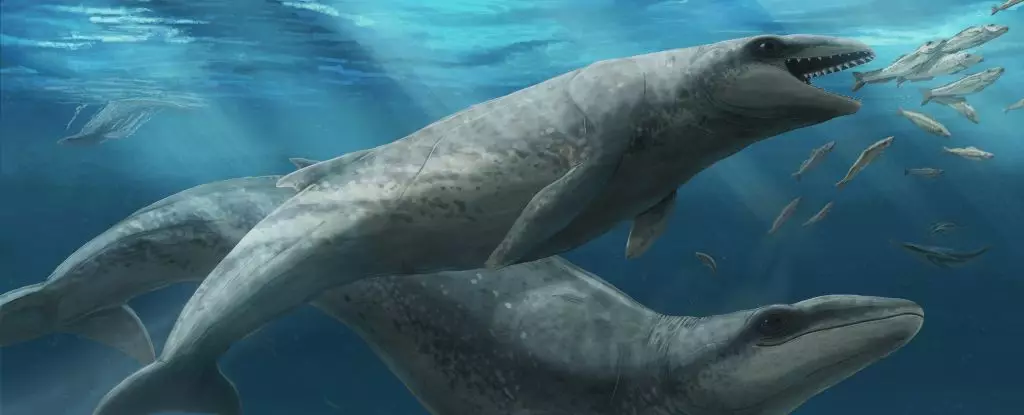The recent discovery of a tiny, ancient baleen whale spec, Janjucetus dullardi, exposes the often overlooked fragility and complexity of evolutionary progress. While mainstream narratives tend to celebrate the grandeur of modern whales—massive, mighty, and seemingly unstoppable—this fossil plunges us into a sobering reflection on how nature’s most magnificent creatures are born from a series of compromises, failures, and delicate adaptations. The evolutionary journey of whales exemplifies nature’s imperfect process, a history riddled with dead-ends, extinct species, and the constant struggle to survive in an unforgiving world.
The focus on this diminutive whale illustrates a broader truth: size and dominance are not static achievements but transient states within the relentless treadmill of natural selection. This species, no larger than a human or a prehistoric penguin, underscores that early whales were small, vulnerable, and—more often than not—ineffective. Their diminutive stature hints at a period when marine mammals were still experimenting with life in the ocean. This phase was defined by struggle, merging predator and prey in a delicate balance, always on the precipice of extinction. Such a revelation complicates any simplistic, celebratory narrative that equates evolution solely with progress and strength.
The Illusion of Progress and the Role of Extinction
Instead of viewing the rise of giant whales as a pinnacle of evolution, it’s crucial to recognize it as a fortunate outcome amidst countless failures. The fossil record, including this recent find, demonstrates that many lineages of early whales, much like Janjucetus dullardi, failed to persist. They were ill-suited, either because they could not develop the necessary adaptations or because environmental changes rendered their methods of survival obsolete. The evolutionary process, often lauded as an inexorable march toward perfection, in reality, resembles a series of flawed experiments—most of which end in extinction.
This perspective calls into question our tendency to idolize the evolutionary success stories at the expense of acknowledging the many dead ends along the way. The survival of a few lineages, like the modern baleen whales, is not an indication of inherent superiority but an accident of history. Evolution is less a tale of progress and more a story of relentless trial and error, with natural selection acting more like a ruthless editor than a benevolent author.
Implications for Conservation: Learning from Our Flawed Past
This fossil underscores a vital lesson for contemporary conservation efforts: the importance of humility in our perception of progress. Just as the tiny Janjucetus owned its brief moment in the ancient seas before fading into oblivion, today’s species are equally fragile, vulnerable to rapid environmental shifts, human interference, and complex ecological disruptions. Recognizing that even the most seemingly dominant species are born from a history of struggle should inspire a more cautious, center-leaning approach to protecting biodiversity.
Our capitalist-driven exploitation and relentless development have accelerated the decline of countless species, pushing to the brink not just individual species but entire ecological communities. Understanding the precarious origins of whales reminds us that evolutionary success is not guaranteed and that we, too, are part of a fragile biological network. The lesson here is clear: coexistence and cautious stewardship are paramount if we want to prevent a future where the dominant survivors are not celebrated but remembered as remnants of a failed, fragile experiment.
A Call for a Balanced, Realistic View of Evolution
The discovery of Janjucetus dullardi should challenge us to adopt a nuanced view of biological progress—one that recognizes both the marvels and the failures. Evolution is marked by endless iterations, and the size and might we admire today are the results of countless species that didn’t make it. This humble acknowledgment fosters a more compassionate and pragmatic attitude toward the natural world and our role within it. We are not the culmination of evolution’s ultimate plan but a fleeting, fragile chapter in a long history of trial, error, and adaptation.
In this light, modern conservation efforts should reflect a more grounded and realistic approach, emphasizing resilience and adaptability rather than simplistic notions of progress. Acknowledging the imperfect, often brutal evolution of whales and other species can inspire policies that prioritize stability, ecological balance, and respect for the intricate web of life—a necessary stance if we are to endure as part of this ongoing natural experiment.


Leave a Reply